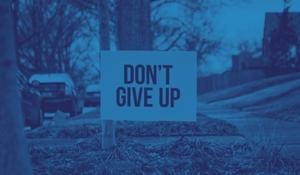The Weaponizing of the Word ‘Woke’ Signals a Loss of Curiosity
If you peer beneath the charred remains of the word ‘woke’, you’ll find a clever, poetic, even ironic coded message that bonded African Americans for nearly a century. It was never intended to be emblazoned onto political banners. From song lyrics to wry understatements about the dangers of one’s heritage, “woke” served as an almost secret micro-moment of mirth.
It may seem strange to align such a controversial word with the demise of ethnography, but I see it as a symbol of a larger lack of curiosity and subtlety.
I joined the workforce in the era of cool hunting, trends, and tribes. Then came fragmentation, thanks to the Internet. Suddenly, there were so many nano-tribes that it felt futile to categorize them. With the added pressure not to stereotype and the negative connotations around anthropology, we began distancing ourselves from people-probing. On one side we feared stereotyping and on the other, we were afraid of being hopelessly wrong.
Today, the main categorization of groups centers on race and age. We’ve pulled back so far from tribes that we are making even more meaningless claims than we did when we tried to distinguish at least some nuance. Our fear of exploring subtleties and the need to turn everything into the big and the binary has hampered both of these seemingly disparate topics
When the media and other ‘out-groups’ started (mis)using the word ‘woke’, we lost something.
This originally well-meaning appropriation removed the satire, the intimacy, and the secrecy that gave it its power. This freshly denuded word was a perfect target to be weaponized. It became another hand grenade in the culture wars.
For me, this is one of many examples of language losing its complexity - leading to a more fragile understanding of the world. And this is what happens when we strip away the layers from tribes of people or demographics. The bigger and blunter our characterizations, the more we’re tempted to beat each other with them.
So, let’s step out of this rut of simply talking about groups like ‘Gen Z Asians or ‘white Boomers’. Let’s get curious, and lean into the oddities, the habits, and the truths underpinning our differences. By daring to explore them, we might learn something (like why not to say ‘woke’).



